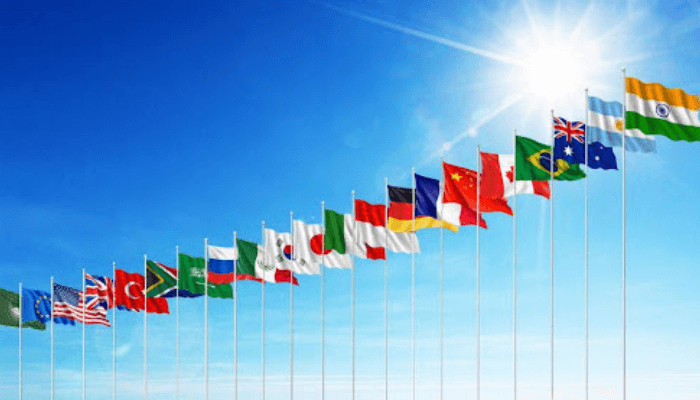Top 10 G20 countries with minimal engagement across Africa
A recent analysis of geopolitical influence in Sub-Saharan Africa shows that several G20 member countries have limited or no direct presence across the region. Sub-Saharan Africa continues to grow in importance due to its population, natural resources, and emerging markets.
Countries with stronger ties to Africa often gain better access to raw materials, labour, and diplomatic opportunities. In contrast, limited influence can lead to missed partnerships and reduced involvement in regional initiatives.
As global interest increases, especially from countries like China, India, and Russia, the absence of sustained engagement from some G20 nations becomes more noticeable. Countries such as South Korea and Australia, with fewer historical or linguistic ties to Africa, have a smaller presence. While this avoids past grievances linked to colonial history, it may also reduce diplomatic and economic gains.
Read also: Top 10 African countries fueling natural gas demand in 2025
These countries often focus on select partnerships. Australia invests in mining in Southern Africa, while South Korea targets technology and manufacturing. This narrow approach can be effective but may be viewed as transactional. A smaller footprint offers flexibility and fewer risks of criticism, yet it limits influence and bargaining power. Without deeper engagement, these countries may have less impact on shaping Africa’s economic and political direction.
According to a report by the Institute for Economics & Peace (IEP), titled Geopolitical Influence & Peace Report, here are the top 10 G20 countries with minimal engagement across Africa.
1. Spain – No Influence (Lost 2 Countries)
Spain currently holds no influence in Sub-Saharan Africa and has lost two countries where it previously had some engagement. This decline reflects a shrinking diplomatic or economic footprint in the region.
2. Italy – No Influence (Lost 1 Country)
Italy has also seen its influence drop, now recording zero countries in the region under its current reach. The loss of one country marks a small but significant reduction in its African connections.
Read also: Top 5 African countries at risk of losing the most skilled professionals
3. South Korea – No Influence (Lost 1 Country)
South Korea joins the list with no active presence in Sub-Saharan Africa and a recent loss of one country. While known for its global tech and economic strength, its ties to Africa remain limited.
4. Brazil – No Influence (No Change)
Despite historical links to some African nations, Brazil currently exerts no influence across Sub-Saharan Africa. There has been no gain or loss in recent years, suggesting minimal engagement.
Read also: Top 10 African countries with high instability risk
5. Canada – No Influence (No Change)
Canada shows no measurable presence in the region. While it maintains foreign aid and development commitments globally, its direct influence in Sub-Saharan Africa is currently non-existent.
6. Australia – No Influence (No Change)
Australia’s geographic distance from Africa may contribute to its lack of direct influence. There has been no shift in engagement or expansion of partnerships in Sub-Saharan Africa.
Read also: Africa’s 10 riskiest countries for businesses
7. Mexico – No Influence (No Change)
Mexico, like others on this list, has no recorded influence in the region. There have been no recent diplomatic or trade gains or losses, highlighting a static relationship with Sub-Saharan Africa.
8. Indonesia – No Influence (No Change)
Indonesia, despite being a key player in Southeast Asia, has not extended its influence to Sub-Saharan Africa. There are no active partnerships or diplomatic wins in the region.
Read also: Top 10 companies Africans aspire to work for
9. Türkiye – No Influence (No Change)
Türkiye has made headlines for increasing its global presence, but that momentum has yet to reach Sub-Saharan Africa in any measurable way. Its influence remains at zero, with no recent movement.
10. Switzerland – No Influence (No Change)
Though not a full G20 member but a regular invitee, Switzerland rounds out the list with no current influence in Sub-Saharan Africa. Its traditional neutrality may partly explain its limited footprint.





